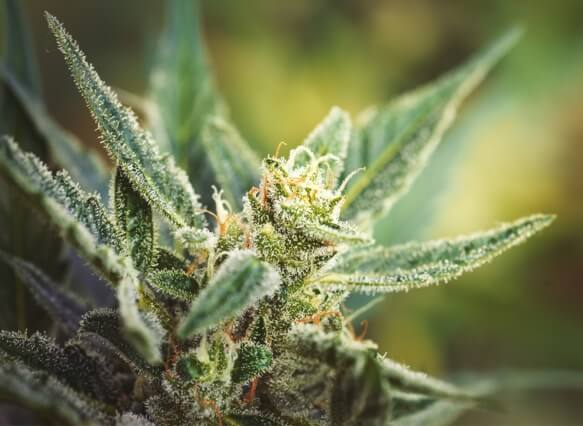Marijuana is a mood-altering drug derived from the dried flower of the cannabis plant. You may feel a rush of euphoria after inhaling or consuming marijuana. But when these effects fade, the chemical metabolites of the drug, called cannabinoids, remain in your body. The length of time these chemicals stay in your system varies.
When testing for marijuana use, many drug screenings measure the amount of tetrahydrocannabinol, or THC, in a person’s system. THC is the primary ingredient in marijuana responsible for producing a high.
After a single use of marijuana, commonly referred to as weed, THC may remain in your body for a few days. However, chronic marijuana use or marijuana addiction can cause THC to linger in your system for weeks.
 Weed stays in your blood for two to seven days and in your urine for up to two months.
Weed stays in your blood for two to seven days and in your urine for up to two months.
Using data from the U.S. National Drug Court Institute, the National Health Service estimated that an occasional or first-time weed user may test positive for the drug up to four days after last using. A frequent user may test positive up to 10 days after last using. A heavy user could test positive one to two months after last using.
Mayo Medical Laboratories provides an estimated duration period for various types of marijuana users:
Single Use3 Days
Moderate Use5 Days
Heavy Use (Daily)10 Days
Chronic Use30 Days
Source: Mayo Medical Laboratories
Where Marijuana Is Stored in the Body
While most marijuana tests screen for THC in urine, the psychoactive chemical can be detected in other parts of the body as well. The length of time weed is stored in the body varies by location.
How Long Does Weed Stay In Your URINE?
Many employers test THC levels through urine examinations. Numerous reports have estimated the length of time THC remains in urine. For example, LabCorp’s Drugs of Abuse Reference Guide states that marijuana is detectable in urine after last use anywhere from two days for first-time users to two months for chronic users.
A heavy user could test positive
1 to 2 months
after last using marijuana.

A study published in the Journal of Analytical Toxicology found evidence of a THC metabolite four weeks after last use among some heavy weed users.
How Long Does Weed Stay In Your Fat Cells?
THC-COOH is a byproduct of THC and the primary metabolite urine tests measure. This substance can be stored in your body fat for weeks. For this reason, the body takes longer to eliminate THC from its system than it does for any other common drug.
After building in fat tissue, THC spreads to the blood. A 2013 study published in the journal Drug and Alcohol Dependence found that exercise can cause THC metabolites to transfer from fatty tissues to your blood.
How Long Does Weed Stay In Your Blood?
THC metabolites can remain in the bloodstream for two to seven days, contingent on the frequency of use.
A 2009 study published in the journal Addiction tested THC blood concentration levels in 25 frequent, long-term cannabis users over seven days of abstinence. Sixteen users had at least one positive THC test during those seven days. Six users displayed positive THC levels on the final day of abstinence.
How Long Does Weed Stay In Your Hair?
Many employers test hair strands when conducting drug screenings. However, a 2015 study by the Institute of Forensic Medicine in Freiburg, Germany, contradicts the claim that testing hair follicles is a sound method of identifying marijuana use.
Each day for one month, researchers gave one participant 50 mg of THCA-A, a compound in cannabis that converts to THC. They then tested for the presence of THC and other analytical targets in sweat and hair samples. While no THC was found in any hair samples, researchers detected THC-COOH, which in lab tests is considered proof marijuana was consumed.
The study authors concluded that THC, THCA-A and THC-OOH can be present in the hair of people who never consumed marijuana. They explained cannabis users can transfer these substances to a nonuser through contact with their hands, sweat or exhaled smoke.
However, in a more recent study published in Drug and Alcohol Review, researchers tested 105 hair samples and did not detect any THC or THC-OOH in nonusers. They did detect THC in the hair of 77 percent of heavy cannabis users and 39 percent of light users. While the authors concluded hair analysis is appropriate for detecting marijuana consumption, they said the approach was unreliable for detecting light cannabis consumption.
History of Marijuana Detection Times
How long does marijuana stay in your system? Over the years, researchers have tried to answer this question through various studies. Many studies involved measuring THC levels in chronic weed users.
- 1982 | 36 days detection time
- This was a retrospective study of one person, though six similar cases were included. No testing data was provided in publication.
- 1983 | 37 days detection time
- Researchers studied 27 patients, though no testing data was provided in publication.
- 1984 | 40 days detection time
- Ten self-reported chronic marijuana users were studied.
- 1985 | 67 days detection time
- Researchers studied 86 self-reported chronic marijuana users. Urine tests were conducted.
- 1985 | 25 days detection time
- Eleven people were studied for cannabinoid elimination patterns. Of those studied, only one person tested positive for marijuana after 25 days. Self-reported heavy marijuana users tested positive an average of 13 days after last using.
- 1989 | 25 days detection time
- Researchers studied 13 self-reported chronic marijuana users. One person tested positive beyond 14 days.
- 1994 | 25 days detection time
- Study used a 5 ng/mL cannabinoid cutoff concentration to determine detection times.
- 1999 | 32 days detection time
- The study included 19 prisoners, though half withdrew from the trial prior to completion.
Source: National Drug Court Institute
Recent studies have also investigated the duration of THC in the body. A 2009 report published in Drug and Alcohol Dependence tested cannabinoid levels among 33 chronic marijuana smokers. Researchers discovered one participant had THC in their system for at least 24 days after cessation.
A 2014 study, also published in Drug and Alcohol Dependence, suggested that heavy marijuana users can test positive on blood and urine tests more than two weeks after last using.
Factors That Influence Detection Times
Many variables influence the duration of THC detectability. Eating habits, exercise routines and body fat percentages factor into the duration period of weed in your system. Other factors that influence detection times include:
Dose
The greater the dose, the longer THC remains in your system. However, dosage is difficult to estimate given that the percentage of THC in marijuana varies.
Route of Entry
A 2004 report found that THC metabolites remained in urine longer after the oral ingestion of marijuana than they did after inhalation. Consuming THC-laced brownies is an example of the oral ingestion of weed.
Duration and Frequency of Use
Frequent or chronic marijuana users have higher levels of THC in their system for longer periods of time.
Metabolism Rate
People with higher metabolisms break down cannabinoids faster, creating a shorter detection period.
Eliminating THC from Body
Many marijuana users try to flush THC from their system to prepare for an employment drug test. Nicolas Rossetti, manager of clinical services of Mobile Health, told Healthline that cleanses and teas have diuretic properties that can lower your THC levels.
Cleanses and teas may also change the amount of creatinine in the urine, which can affect a urine test. However, high levels of creatinine set off red flags to the tester, and the sample may be deemed unacceptable by the company.
Medical Disclaimer: DrugRehab.com aims to improve the quality of life for people struggling with a substance use or mental health disorder with fact-based content about the nature of behavioral health conditions, treatment options and their related outcomes. We publish material that is researched, cited, edited and reviewed by licensed medical professionals. The information we provide is not intended to be a substitute for professional medical advice, diagnosis or treatment. It should not be used in place of the advice of your physician or other qualified healthcare provider.
 Addiction
Addiction
 Treatment
Treatment
 Faith & Religion
Faith & Religion
 Active Recovery
Active Recovery
 Our Community
Our Community







